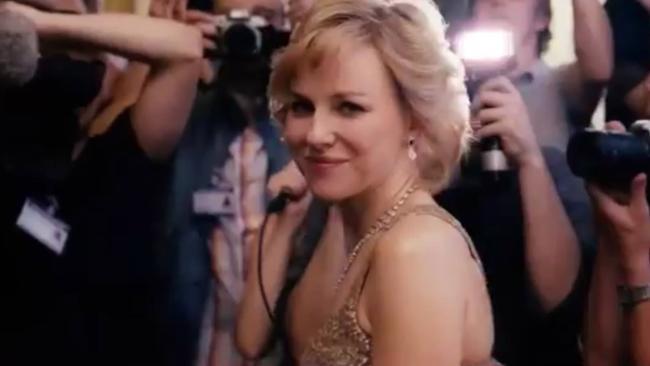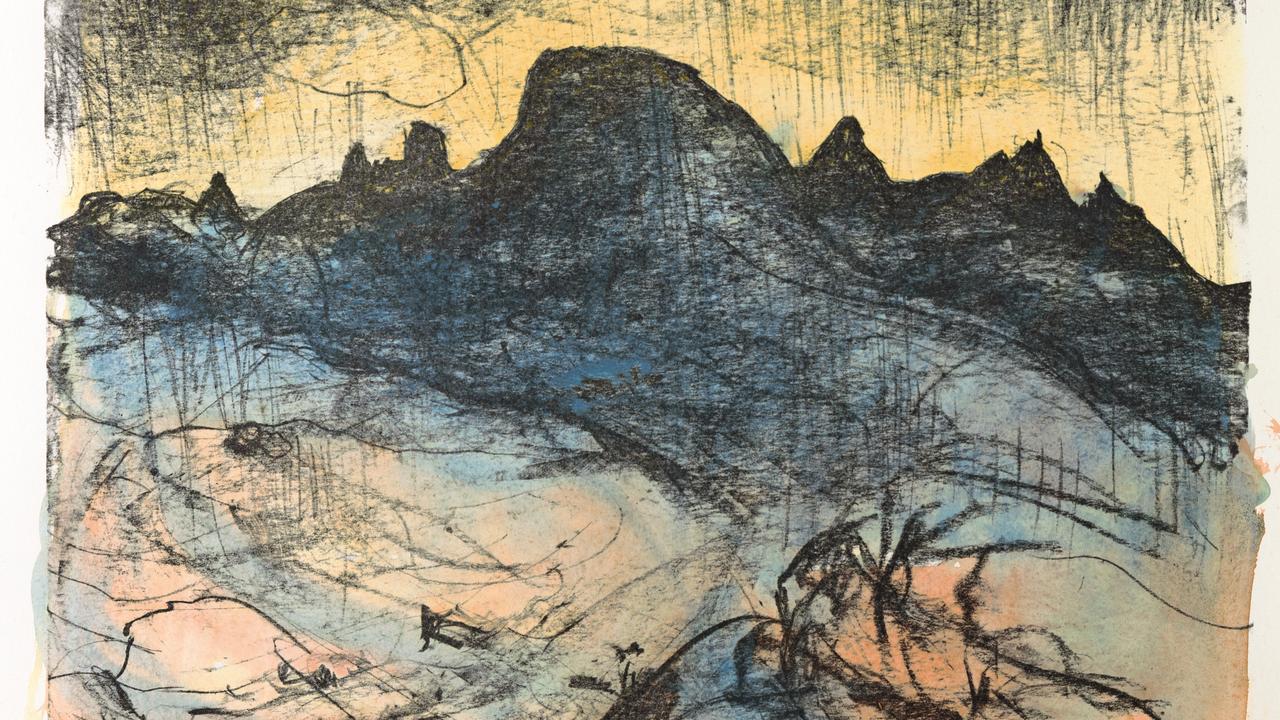Naomi Watts on playing Princess Diana
NAOMI Watts has had to defend this role more than any other in her career. "Everyone feels Diana belongs to them," she says.

NAOMI Watts saw it coming. It's why she baulked twice at playing the character. Subsequently, she has had to defend this role more than any other in her acclaimed career. "Everyone feels Diana belongs to them," she says.
The fervent reaction in Britain to her portrayal of the princess of Wales is "exactly as I expected thus far", she says.
The film depicting the final two years of the much loved princess's life, Diana, copped a panning from the British press when it premiered there this month.
The press that colluded with the People's Princess would brook no ill of her; certainly not in a film directed by a German, Oliver Hirschbiegel, best known for Downfall.
And Watts, 44, who was born in England but spent some of her formative years in Australia, has had to reinforce her British upbringing to the baying media. "I know!" she says, laughing. "How dare I take on playing the most iconic British woman and I'm not properly British. Oh god!"
It remains to be seen whether the audience will be as damning. Probably not. The film hits its marks in re-creating the unknown chapter of Diana's life but doesn't quite succeed in tone. Watts appreciates any apprehension on the part of the audience.
"She embodied so much and they feel because she was absolutely, categorically the most famous woman of all time they feel they know her," the actress says. "And so to take possession of her and make your own interpretation of her, you're not allowed to do that."
That became clear in the first reviews from London. Almost unbelievably, some reviews screamed Watts didn't look like Diana. Of course, the same criticism is not being made of another Australian's portrayal of a much-loved Brit - Chris Hemsworth's role as Formula One driver James Hunt in the coming film Rush.
Watts says she's "not interested in mimicry" although the attention she paid to the princess's mannerisms and demeanour is deliberate and minute. We should expect nothing less from an actress in demand from so many of the world's best directors and clearly among the best of her generation.
Hirschbiegel, like Peter Jackson, Clint Eastwood, Michael Haneke, David Cronenberg, David Lynch and so many other directors before him, appreciates the industry she brings to her performances. But he couldn't convince Watts to bring that industry to a role that would become a target.
After Downfall, his acclaimed, and widely parodied, docudrama about the last days of the Nazi regime, the director failed with the thriller The Invasion starring Nicole Kidman and Daniel Craig before making the more convincing Irish Troubles drama Five Minutes of Heaven.
But it wasn't the director at issue for Watts, it was his subject. "I was obviously very afraid of taking it on for so many reasons," she says. It was, and continues to be, a challenging task because of the intrigue surrounding Diana's life to this day.
"It's hard enough taking on the challenge and executing things like the voice and the walk and the look," Watts adds. "That's very, very hard and daunting, the transformation. But then because you know people will ask you why did you do this and what are you trying to say, you're forced into defending it, rather than hoping people will just enjoy it.
"I'm back to square one basically," she says, sighing. "It's very hard to sell my work anyway but much more difficult in this way."
Diana sells itself, though. It is neither as bad as the hysterical British reviews would suggest nor as stunning as we may have expected given the talk of awards.
It fits Watts well though, emotionally if not physically. She found the character study fascinating, "like all of the women I'm interested in playing, full of contradictions, full of strengths, and in this case she has a huge amount of compassion and empathy".
Diana Spencer was thrust into an extraordinary life and extraordinary situations, much like many of Watts's screen characters. After years of underappreciated toil, Watts popped in David Lynch's enigmatic 2001 film Mulholland Drive.
Since then, she has delved into some dark and interesting places. She could have become the dull blonde heroine; instead she became a heart-wrenching leading woman. Even when she was the blonde heroine in her most conventional Hollywood role, as Ann Darrow in Jackson's King Kong remake, she made an emotional connection with a computer-generated ape.
Diana, despite her omnipresence, is another complicated character. "I'm always interested in characters of this type," Watts comments.
Diana isn't a windy catch-all biopic. Nor is it a negative portrayal of the princess of Wales. The film focuses on her final love affair with London heart surgeon Hasnat Khan, played subtly by Naveen Andrews. Prince Charles does not appear in the film; their two sons are barely seen.
It is based on Kate Snell's 2001 book Diana: Her Last Love and, consequently, doesn't indulge in the worst revelations to emerge from her life and the troubled final years of her marriage to Charles: the self-harm, screaming fits and manipulation.
The film re-creates sharply her notorious tell-almost-all interview with journalist Martin Bashir in which she revealed, "Well, there were three of us in this marriage, so it was a bit crowded." And it has fun recounting her means of manipulating the media.
But beyond some cringeworthy dialogue - to be fair, dialogue that is no less implausible than Charles's illegally recorded phone sex with Camilla - the film's harshest implication is that Diana started to date Dodi Fayed to make Khan jealous.
This, and many of the film's revelations of the deep romance between Diana and Hasnat, have been independently corroborated recently by an extensive cover story in Vanity Fair magazine. That piece quotes a friend of Diana saying she told her the summer she died: "Everybody sells me out. Hasnat is the one person who will never sell me out."
And he hasn't sold her out, criticising the film recently, sight unseen. The film dramatises their relationship, which was shielded from the public eye and consequently remained, until now, the only unexplored aspect of the most public of lives.
"Because we are so saturated in information there's nothing new learned, and, certainly I can speak for myself, the reason I was able to wrap my head around it was that it was a story that was completely unknown to me," Watts says.
Watts knew of the affair but not its detail. And it was fascinating, particularly in light of the mournful mythmaking by Dodi's father Mohamed al-Fayed. He proclaimed not only that his son was the love of Diana's life but her death was a conspiracy to kill the prospect of her marrying a Muslim (a wild notion dismissed in the 2004-08 inquest into Diana's death).
Watts is keen not to dismiss the possibilities of the Dodi romance, but adds of Khan: "This one was the real thing. And it felt, because it was so covered up, worth exploring."
The exploration required Watts to convince herself of the romance's veracity. She approached people who knew Diana and did her own research.
"It's hard to gauge what was real and what wasn't because a lot of the time the stories were so conflicting, so that's why I did reach out to people who knew her," Watts says. "And without revealing who they were or are, they seemed to endorse what was being said by Kate Snell."
And some of the relationship is based on clear fact. For instance, Khan spoke to the inquest into Diana's death via a statement to the 2004 police investigation. Nevertheless, the dialogue between Diana and Khan can only be imagined and will be forever open to ridicule for being so. Producer Robert Bernstein said the filmmakers approached the relationship sensitively after discussions with Khan and his family. He described it as a "very aspirational, sympathetic portrait" of a difficult relationship. It was "not voyeuristic".
After convincing herself of the tale, and the bona fides and intent of the film's production team, Watts tackled the observation of Diana and her transformation.
Initially, Watts noticed Diana used the left side of her face. That was problematic, she says, laughing. "I tend to chew on my right side, smirk on my right side, I part my hair on my right side.
"That's the side of my face that works more than the other side. I can see as a result I have a lot more lines on that side of my face!"
Watts thought it would be too hard to alter that for her portrayal, thinking she'd look like she had a stroke. Or that she was just being excessive.
Watts's dialect coach told her to go for it, however, particularly because Diana's hair part and the way she peeked from underneath her hair were not only essential facets of her behaviour, but they would ensure her face, as it were, would follow her eye. Watts chewed toothpicks to paralyse the other side of her face.
She knew she had to nail the re-creation of the interview with Bashir because those images of the wounded yet beguiling jilted princess, with her mournful eyes peeking from a falling face, remained in our minds.
"It's the time she spoke most candidly and people remembered that so I wanted to get that most accurately and as close to her as possible," Watts says.
"I'm not interested in mimicry but in the case of that interview and one or two other speeches I really did want to get it as exact as possible. But the rest of the time, in Kensington Palace and when she's with [Khan], I wanted to do my own thing."
Of course, once the Bashir interview was in her head, that Diana became her template, particularly the breathiness of her voice. Watts describes it studiously as having "a poshness but the modernised version of posh, which was putting the breath in and taking out the stiff upper lip".
The technical acuity seems ill-fitting coming from Watts, who is better known for her emotional depth. On screen at least, she's a heart actor, not a head actor.
Few actresses go further than she does; and just when we thought she had reached her soulful pit in films such as Funny Games and 21 Grams, it was almost distressing to see what she put herself through in the heart-wrenching re-creation of the 2004 Indian Ocean tsunami, The Impossible, for which she earned her second Academy Award nomination last year.
Surprise at her methodical research for Diana sells her short, or merely shows how convincing a dramatic actress she is.
That research and obsession with this character led her to some odd thoughts though, one of which the Brits seized on early as another example of the film's folly. Diana spoke to Naomi.
At least Watts dreamed of Diana and mistakenly told her director. Hirschbiegel parlayed it in a press junket into a bad Chinese whisper wherein Diana spoke to Watts and granted her permission to make the film. She kicked Hirschbiegel under the table as soon as he said it.
Watts still cringes about the incident. "If you can do some troubleshooting on that, I'd love it," she says with a laugh. "Of course a dream, when they're told, never sounds right and I regret having mentioned it," she adds.
"Basically it was a case of when you become obsessed with something it plays out in your subconscious and your dream life. Yes, it was a conversation I had with her and it sounds completely absurd - and I felt the question was there in my dreams but it wasn't answered."
Diana opens nationally on October 10.


